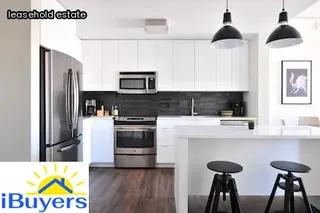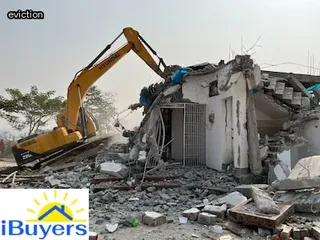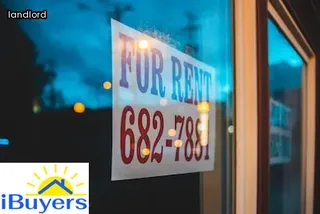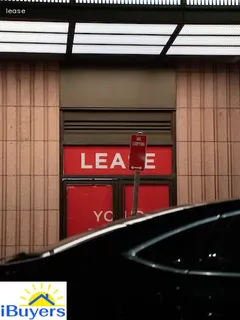In Colorado, there are certain legal grounds for eviction that must be met before a landlord can begin the eviction process.
These grounds include nonpayment of rent, lease violations, excessive damage to the property or unit, criminal activity on the premises, illegal drug use or manufacturing on the premises, and failure to move out at the end of the lease term.
Landlords may also evict tenants for refusing reasonable access to the rental unit for repairs or inspections.
Additionally, landlords in Colorado may not evict tenants due to discrimination on protected classes such as race, gender identity or expression, national origin, disability status or sexual orientation.

The eviction process in Colorado is a complicated one, and it's essential for landlords to understand the timeline for the entire process. From filing the notice of eviction to when a tenant must leave the property, there are many steps that can take anywhere from days to weeks.
Depending on the reason for eviction, landlords must first send a written notice to their tenant with an explanation of why they must leave. This can be due to unpaid rent or lease violations.
If a tenant does not comply within the given time frame, then a landlord may file an eviction lawsuit in court. The court will then determine if there is cause for eviction and issue an order that requires the tenant to vacate.
After this, landlords will need to wait until the sheriff serves their tenant with an official notice before they can begin removing any belongings from the property. During this process, it's important for landlords to remain patient as they await their tenants' departure and make sure they comply with all state laws each step of the way.
When it comes to eviction proceedings in Colorado, landlords must be prepared to send notices to comply and termination with cause. The Colorado Revised Statutes provide guidance on the types of lease violations that are acceptable for these notices, as well as the notice requirements for each type of violation.
Landlords must be sure to include all required information in their notices, such as the date on which the tenant is expected to comply or vacate, a statement of rights and remedies available, and a deadline by which the tenant must comply. Tenants who do not comply within the given timeframe can then be served with a termination with cause notice, which may result in immediate removal from the premises.
It is important for landlords to understand the process and timeline associated with both preparting notices to comply and termination with cause in order to proceed effectively in accordance with Colorado law.

Once a landlord has decided to start the eviction process in Colorado, they will need to serve notice to their tenant. This can be done in multiple ways: by hand delivery, posting on the tenant's door, or sending via certified mail with return receipt requested.
The notice needs to state the amount of rent due, how much time they have to pay it (typically three days), and that if they fail to do so, an eviction action will be filed in court. After the notice is served, if the tenant does not pay their rent within the set timeframe, then a landlord must file a complaint for eviction with the county court clerk.
The filing fee for this can vary by county but generally ranges from $50 - $200 USD. It is important for landlords to remember that all notices and complaints for eviction must comply with Colorado state laws or else risk having an eviction case dismissed.
When it comes to the eviction process in Colorado, landlords must take certain steps in order to legally ask for possession of a property. The first step is to provide the tenant with an official written notice that states they must vacate the premises.
If this goes unheeded, a landlord must then seek legal action by filing a Complaint and Summons in the County Court where the property is located. During court proceedings, landlords are responsible for providing evidence of valid cause for eviction, such as missed rent payments or violations of the lease agreement.
It is important that landlords be prepared to present evidence to back up their claims in order to have a successful outcome at court. Additionally, landlords should review all applicable state laws regarding eviction procedures before beginning any legal proceedings.

If a tenant refuses to vacate after the landlord has served them with a Notice to Quit, the next step is for the landlord to take legal action. This process is known as an eviction.
As with any legal proceedings, the length of time for an eviction varies depending on the state and can range from a few days to several months. In Colorado, landlords need to be aware that the entire process usually takes around two months from start to finish.
The first step is filing a Complaint with the court, which must be done within 30 days of serving the Notice to Quit. The tenant then has 14 days to respond; if they do not respond or contest it, then there will be a Final Judgment in favor of the landlord and they can apply for a Writ of Restitution from their county sheriff's office.
Once this is granted, law enforcement will serve it on the tenant and they will have 24 hours to vacate before they are forcibly removed by law enforcement officers. It's important that landlords understand all aspects of Colorado's eviction process because it can affect how quickly they can regain possession of their rental property and protect their rights as landlords.
Using DoorLoop to streamline the Colorado eviction process can help landlords save time and money during the eviction process. This innovative platform combines all of the necessary documents and tasks into one convenient location, allowing landlords to quickly and easily manage their evictions.
With this system, landlords have access to comprehensive, up-to-date information about all applicable state and federal laws, as well as detailed instructions on how to successfully complete an eviction in Colorado. Additionally, DoorLoop offers helpful resources for both tenants and landlords, including a calendar that helps keep track of deadlines and court dates, as well as automated reminders when important paperwork is due.
Furthermore, landlords are able to access assistance from expert legal advisors who can provide guidance through each step of the eviction process. By using DoorLoop's streamlined approach to evictions in Colorado, landlords are able to ensure that the entire process is handled efficiently and with minimal disruption for both parties involved.

Taking advantage of free downloads to save time and make more money is an ideal way for landlords to get the most out of their investment properties. By utilizing resources such as checklists, forms, and other templates, landlords can quickly navigate the eviction process in Colorado.
Having access to these resources can help landlords understand the laws that apply to them and how long it typically takes for an eviction. In addition, downloading a checklist or form can help landlords stay on top of deadlines, ensure all paperwork is filled out accurately, and minimize costly delays in the legal process.
This can help save time and money and prevent any unnecessary problems from arising during an eviction. The use of free downloads also allows landlords to easily update their documents with changes in applicable state or local laws.
Utilizing these resources is key for successful evictions without costing a fortune in legal fees.
If you're a landlord in Colorado, understanding the eviction process and having access to the right forms, rules, and procedures is essential. Signing up with our service gives you all the resources you need to know how long the eviction process takes in Colorado.
We provide legal advice from experienced professionals that cover all aspects of evictions in Colorado. Our platform contains detailed information on landlord-tenant laws and rights.
Plus, find out which forms are needed for filing an eviction claim, filing fees associated with each step of the process, timelines for eviction notices and court proceedings, as well as other important details to follow throughout the eviction process. With our help, landlords can feel confident navigating through their state's unique set of laws and regulations surrounding evictions.

DoorLoop is a great tool for landlords who want to maximize their rental portfolio. On the plus side, DoorLoop gives landlords the ability to quickly and easily list their rental properties online and compile a robust database of potential tenants.
Furthermore, DoorLoop provides landlords with helpful analytics that can be used to track the performance of their portfolios over time. On the downside, DoorLoop does not offer any direct assistance with the eviction process which can be a lengthy and complicated undertaking in many states including Colorado.
Landlords should consider all of these factors before deciding whether or not to use DoorLoop in order to manage their rental portfolios.
When it comes to the eviction process, landlords in Colorado need to know all their options. Requesting a demo from DoorLoop is an ideal way to get all their questions answered.
DoorLoop has experienced experts in Colorado law who can provide insight into the eviction process and its timeline. With a demo, landlords can receive answers about how to navigate the eviction process and understand all their rights under the law.
Landlords can also learn about filing requirements for evictions and what kind of documentation is necessary for each step of the process. Furthermore, a demo is a great way to get advice on strategizing for success when initiating an eviction action.
Understanding timelines and other important factors can help landlords make informed decisions throughout the entire eviction process in Colorado.

One of the best ways for landlords to protect themselves during an eviction process is to be well-informed about their rights and obligations in the state of Colorado. This includes understanding how long the eviction process typically takes, as well as what documents need to be filed with the court in order to begin the eviction proceedings.
It's also important for landlords to familiarize themselves with applicable laws and regulations, such as those related to serving tenants with an eviction notice. Additionally, having a written agreement between a landlord and tenant helps ensure that both parties understand their rights and responsibilities throughout the entire process.
Landlords should also make sure they have all relevant information available, such as proof of tenancy or lease agreements. Lastly, it's beneficial for landlords to seek assistance from experienced legal professionals if they are unsure of any part of the legal process or feel overwhelmed by it.
As a Colorado landlord, you may be looking for ways to avoid the eviction process altogether. There are many alternatives that can be explored to reach an amicable solution with tenants without having to resort to an official eviction.
One option is for landlords and tenants to negotiate a payment plan in which the tenant agrees to pay back what they owe in installments or with a lump sum. If this agreement is not possible, then both parties may consider mediation as an avenue for resolution.
This would involve bringing in an impartial third-party mediator who could help facilitate conversation between the landlord and tenant and come up with a mutually beneficial solution. Another alternative is for landlords and tenants to enter into relocation assistance agreements, where the tenant is offered financial assistance from the landlord in exchange for their agreement to vacate the rental property.
Finally, landlords could choose to work out more informal arrangements such as verbal contracts or handshake deals that are legally non-binding but still offer some form of assurance that both parties will uphold their end of any agreement reached. With careful consideration and exploration of all viable options, it is possible for Colorado landlords and tenants to reach satisfactory solutions without going through official eviction proceedings.

Eviction proceedings in Colorado are complex, and it's important for landlords to understand the difference between an immediate right of possession and a forcible entry and detainer action (FED). An immediate right of possession is initiated when the tenant fails to pay rent or breaches the lease.
It allows the landlord to gain access to the property without having to go through a court hearing. A FED action, on the other hand, is required when the tenant has not vacated after being served with a notice or summons that was issued by a court.
This type of eviction involves filing a lawsuit in the county court where the rental property is located. The process can take anywhere from two weeks to several months depending on how quickly paperwork is filed and hearings are scheduled.
Landlords should also be aware of local laws which may affect how long an eviction process takes in their area.
An Unlawful Detainer Action, or UDA, is a type of eviction process in Colorado. It differs from other eviction actions because it is a court-supervised procedure that landlords must initiate to legally evict tenants from their property.
The process begins when the landlord serves the tenant with a summons and complaint. Once this document is served, the tenant has just seven days to vacate the premises or respond to the complaint by filing an answer.
If the tenant does not respond within this timeframe, the landlord can apply for a default judgment and begin eviction proceedings through a Writ of Restitution. In comparison, other eviction actions do not require court involvement, allowing landlords to take matters into their own hands without involving the local authorities or third-party mediators.

If a Colorado landlord is faced with an eviction case, it is important to begin the process by gathering evidence and organizing it in preparation for the court hearing. One of the first steps should be to make sure that all paperwork associated with the rental agreement, such as rental applications and lease agreements, are up to date and accurate.
Landlords should also keep copies of any communication between themselves and their tenants related to the eviction issue, such as emails or text messages. Additionally, landlords should keep track of any payments made by the tenant during this time period, as well as any attempts to contact them about payment.
Finally, it may be beneficial for landlords to bring witnesses to court who can provide testimony about their experience with the tenant in question. By taking these steps before attending a court hearing related to an eviction case in Colorado, landlords will be better prepared for what lies ahead in the eviction process.
Eviction proceedings in Colorado are conducted by the court. Landlords must first present a Notice to Vacate to the tenant.
If the tenant does not comply, a Summons and Complaint will be issued, and the case is then brought before a judge. During this court hearing, landlords are required to prove that they have legal cause for eviction and that they have given proper notice in accordance with state law.
The court may also consider evidence presented by the tenant during the hearing. After both sides have presented their arguments, the judge will render a decision on whether or not an eviction should occur.
Depending on the complexity of the case and other factors, such as if an appeal is filed, it can take several weeks from start to finish for an eviction process in Colorado to be completed.

In Colorado, landlords have some legal recourse for receiving financial compensation during an eviction process. Depending on the circumstances, a landlord may be able to recover certain costs from the tenant, such as back rent and court fees.
Additionally, a landlord might be able to obtain damages if the tenant caused any property damage or has abandoned the unit. To receive these types of compensation, however, landlords must act quickly and follow all applicable laws in order to increase their chances of success.
It's important for landlords to keep accurate records of all interactions with tenants, including any receipts or payments related to the tenancy. Additionally, landlords should seek legal advice if they're unsure about how to proceed with an eviction or what forms of compensation they are entitled to receive.
After winning an eviction case in Colorado, landlords should take immediate measures to ensure they have a valid court order or that their tenant's rights are respected. This includes ensuring that the tenant is aware of the court order, as well as having all necessary documents available.
Landlords should also familiarize themselves with the state's laws concerning post-eviction proceedings, such as how long the tenant has to vacate the premises and any other legalities that may apply. Additionally, landlords should consider taking further steps to protect their interests, such as consulting an attorney or using a third-party service to ensure proper paperwork is filed and that the eviction process runs smoothly.
Taking these extra precautions will help landlords have peace of mind knowing that they are properly adhering to Colorado's laws and regulations while protecting their property and interests.
In Colorado, how fast an eviction can be processed depends on a few factors. From the time a landlord files an eviction lawsuit, it can take anywhere from a few days to several weeks for the tenant to be evicted, depending on how quickly the court and sheriff's office process the papers.
Landlords must ensure all paperwork is filled out correctly and that they meet all legal requirements before beginning the process. Additionally, landlords should be aware that if their tenant chooses to contest their eviction, the process could take longer than usual.
Colorado law also states that tenants must be given at least 3 days of notice before any action is taken against them. For landlords, understanding Colorado's eviction process is essential for protecting their rights and avoiding costly delays.

When a tenant in Colorado receives an eviction notice, the process of eviction begins. The length of the eviction process can vary depending on the circumstances and the county where the landlord and tenant are located.
Generally, landlords must first serve their tenants with a written notice of termination or demand for possession. This notice must include information about how long the tenant has to vacate, usually three to five days after receipt of the notice.
If they do not leave by this time, then the landlord can file an unlawful detainer lawsuit in court. In most cases, if a tenant does not respond to an eviction lawsuit within eight days, a default judgment will be entered against them.
If they have responded to the suit but have not paid rent or vacated within 14 days, then a hearing is held where both parties may present evidence and make arguments before a judge makes his decision. Depending on the circumstances and complexity of the case, it can take up to two months for a final judgement to be issued following all hearings.
If you're a tenant in Colorado and fail to pay the rent, it is important to understand how long you can go without paying rent before an eviction action may begin. According to Colorado law, a landlord must provide the tenant with a 3-day notice to pay or vacate if they are behind on their rent.
After this notice has been served, the landlord is legally allowed to file for eviction if rent is not paid within the allotted time frame. If a tenant still fails to pay the rent even after receiving an eviction notice, the entire process can take no more than 30 days before their physical removal from the property.
However, this timeline does not include any appeals or counter-claims made by either party which could prolong the eviction proceedings. It is important for landlords and tenants alike in Colorado to be aware of their rights and responsibilities when it comes to evictions as well as how long one can go without paying rent before facing legal repercussions.
Landlords in Colorado who have to evict tenants face an often lengthy process. Unfortunately, it is not easy to delay an eviction in Colorado; however, there are some steps a landlord can take.
The most important step is to provide the tenant with proper notice that eviction proceedings have begun. This notice must include specific information about why the eviction is occurring and must be served by either a sheriff or private process server.
If this notice is not served properly, the court may dismiss the case and force the landlord to start the eviction process all over again. If a tenant contests the eviction, he or she has five days to file an answer with the court.
Once this happens, both parties will appear before a judge who will decide if an eviction should occur. Landlords should also consider speaking with legal counsel prior to starting any kind of eviction proceedings as there are certain rules and regulations that must be followed in order for an eviction to be successful.